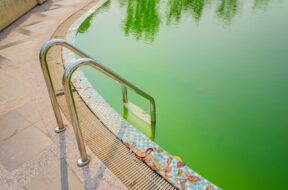
Want to learn more about algaecide? Read on to find out when to add algaecide to your pool maintenance routine and other helpful tips.
Learn more about maintaining your Salt Water pools and hot tubs!

In this detailed guide, we’ll help you find the best pool shock, so you can keep your chlorine or saltwater pool clean, clear, and healthy for swimming.
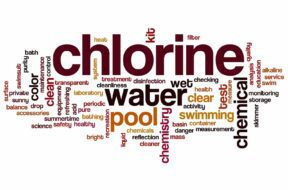
Looking for the best pool test kit for your salt or chlorine pool? This guide will help you choose the best pool test kit based on your needs and budget.

In this buying guide for the best pool algaecide, we’ll help you find the best product based on swimming pool type, budget, and specific needs.
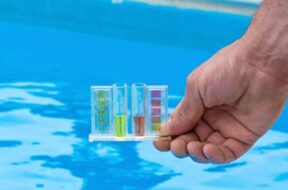
There are many benefits to having a saltwater pool. However, you can’t reap the benefits without the proper equipment. Read on to learn more.
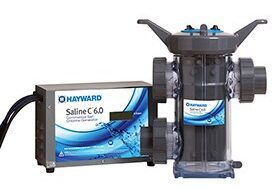
If you’re a pool or hot tub owner and are interested in the growing trend of salt water pool conversion keep reading to learn more about the process!
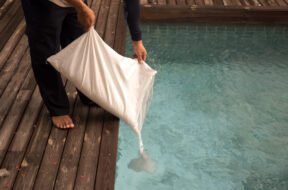
Saltwater generators are quickly becoming a popular sanitizing system for swimming pools and hot tubs. This article describes how they work.

What you sanitize your pool with is one of the most crucial decisions you will make as a pool owner. Contrary to popular belief, there are many different ways to clean your pool. Chlorine is a great and reliable option, but it isn’t the only one.
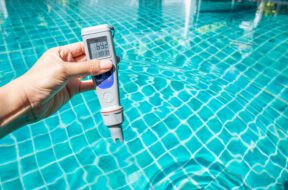
The first chlorine pool was invented and used in the year 1911 by Brown University (See source here). Since then, chlorine pools have become the most popular type of pool in the world. But is it time to rethink that norm?
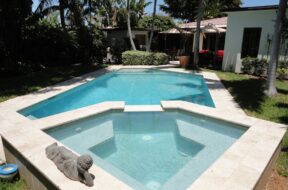
The suggested cyanuric acid level depends on the amount of direct sunlight your pool receives and whether you use a salt chlorine generator.
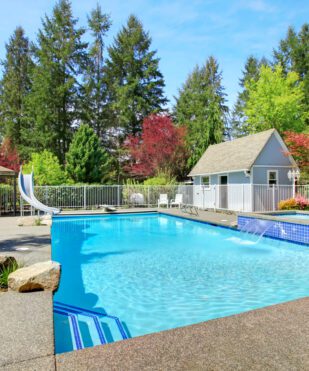
Saltwater and chlorine are the two most common types of pool sanitation. Learn the benefits and challenges with both!

Want to learn more about algaecide? Read on to find out when to add algaecide to your pool maintenance routine and other helpful tips.
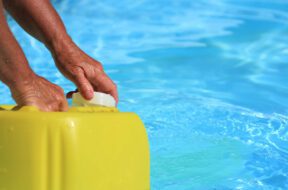
In this quick guide, we’ll answer the question “can you over shock a pool” and unveil the factors to consider when shocking a pool.
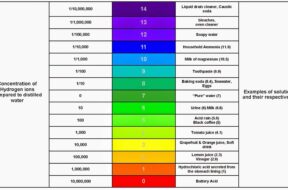
Maintaining both pH and total alkalinity in your swimming pool is important for keeping your pool properly sanitized and non-corrosive. Total alkalinity is to pH what cyanuric acid is to free chlorine. Total alkalinity stabilizes pH levels. The ideal pool pH level is 7.4 to 7.6. The ideal total alkalinity level is 80 to 120 ppm.
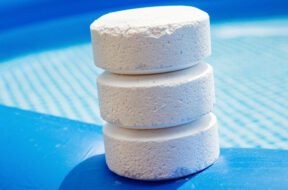
The Association of Pool and Spa Professionals recommends free chlorine levels for both swimming pools and hot tubs be kept between 2.0 and 4.0 ppm. However, the Center for Disease Control recommends free chlorine stay above 1 ppm in pools and 3 ppm in hot tubs.